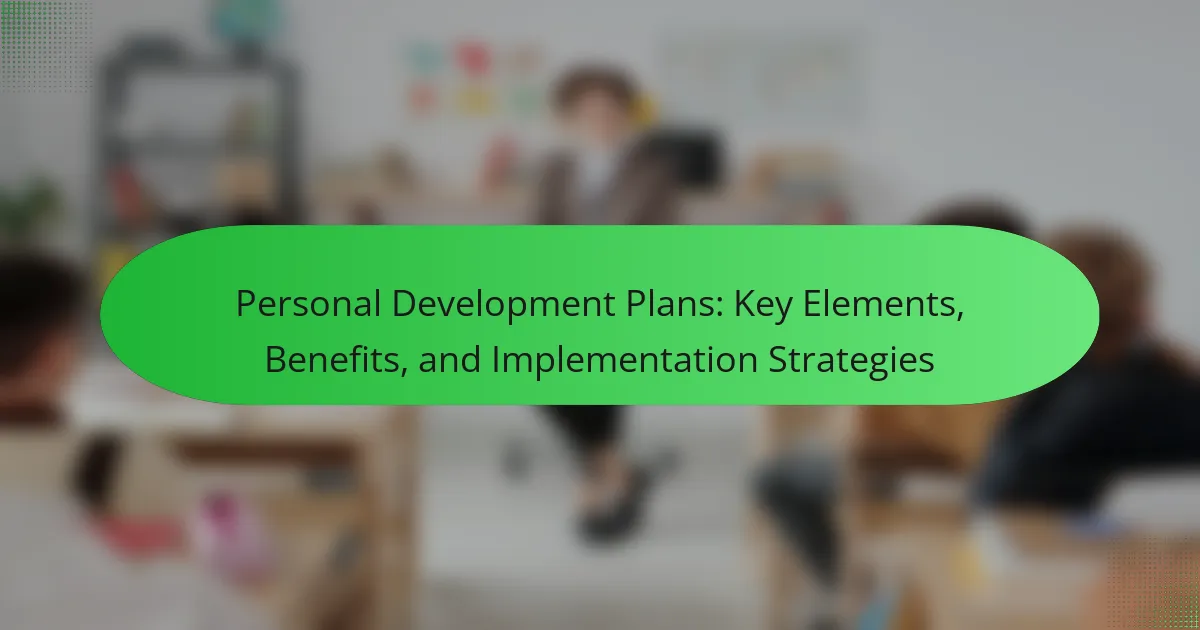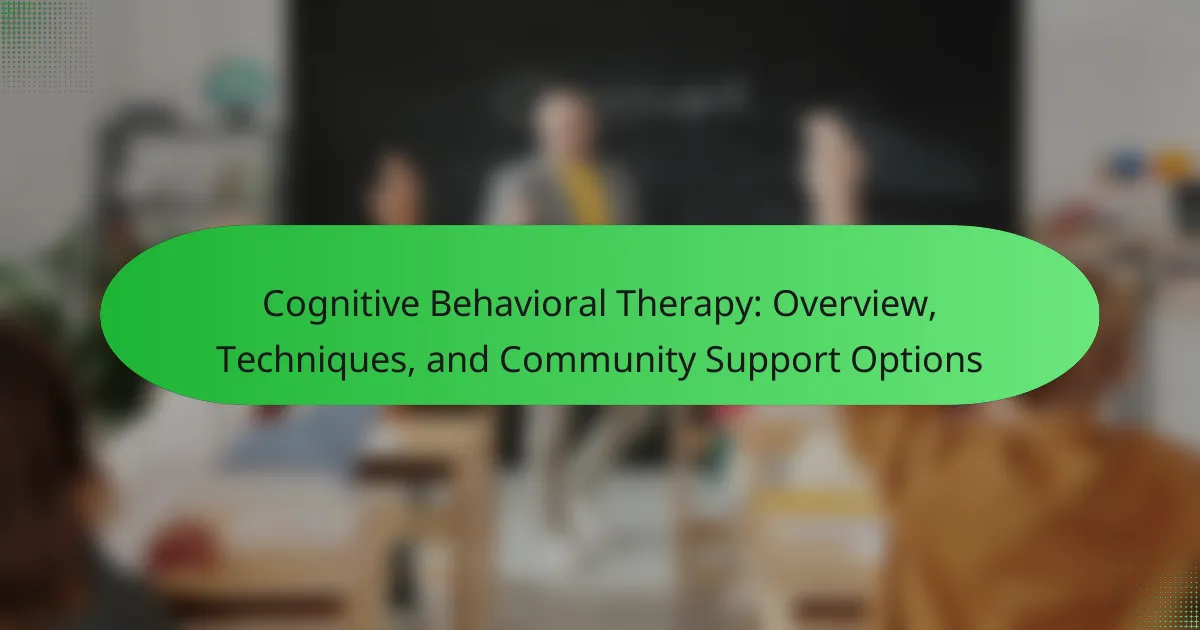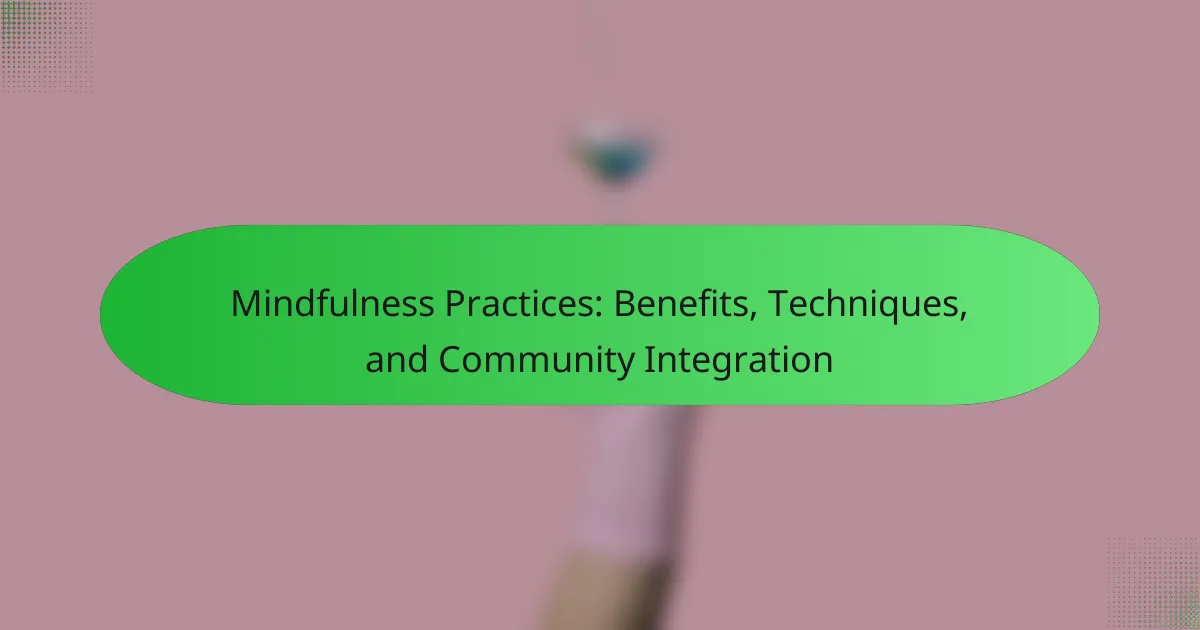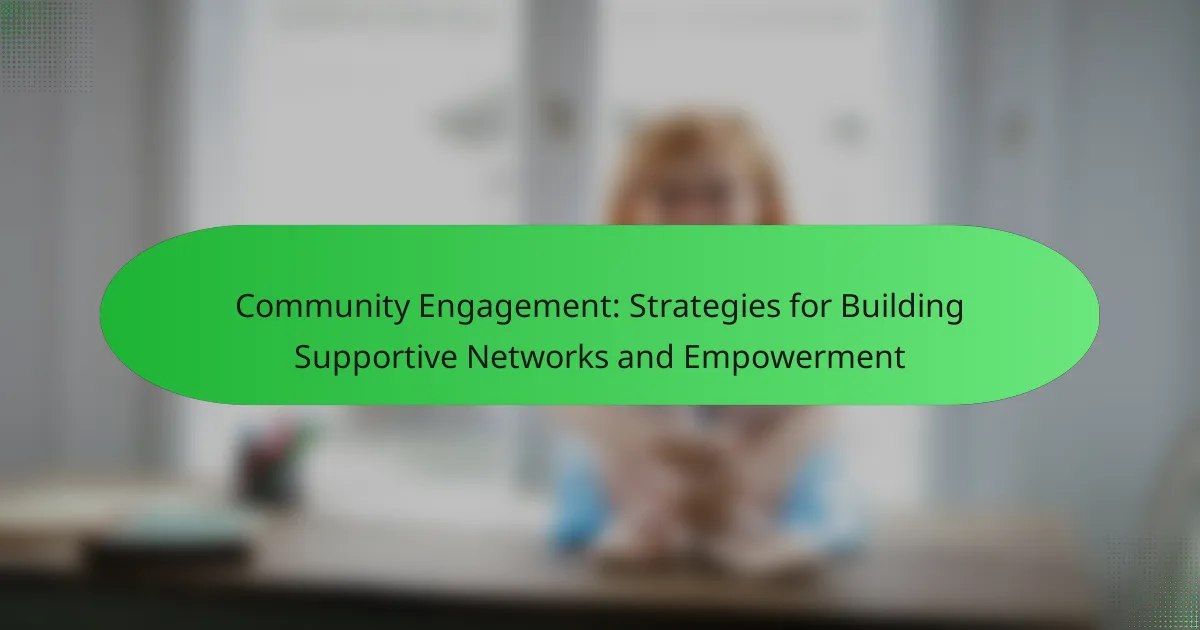Emotional resilience is crucial for navigating life’s challenges and maintaining mental well-being. This article explores key attributes such as adaptability and optimism, highlights the benefits including improved relationships and performance, and outlines effective development strategies like mindfulness and problem-solving. Understanding and enhancing emotional resilience can lead to a more fulfilling and balanced life.
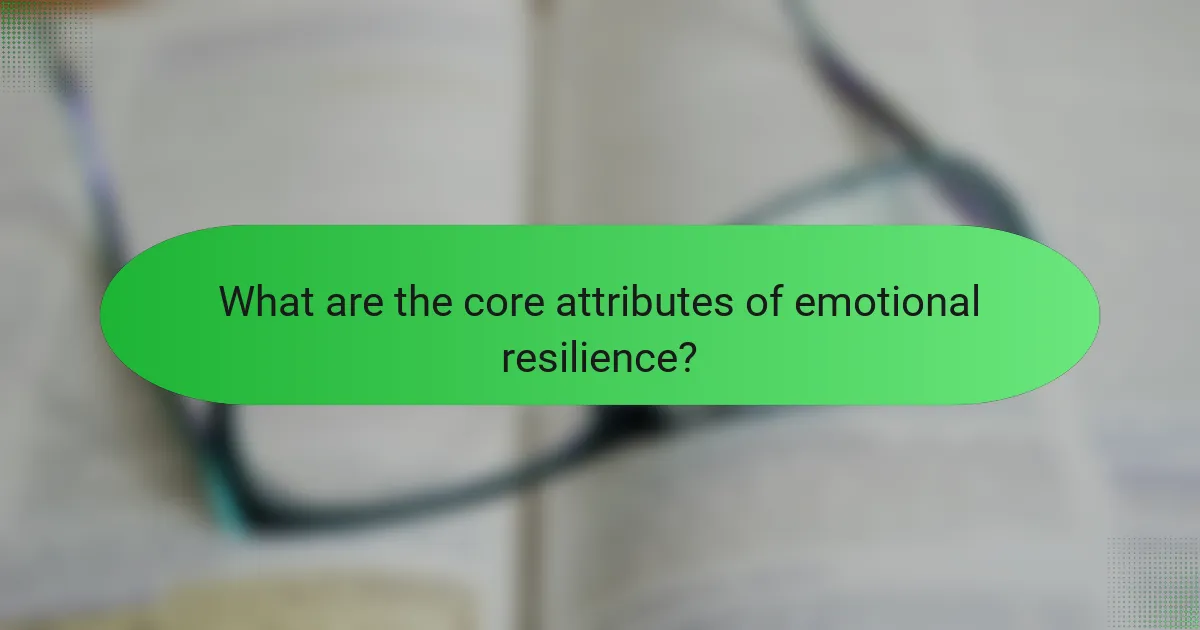
What are the core attributes of emotional resilience?
Emotional resilience encompasses adaptability, emotional regulation, optimism, and social support. These core attributes enable individuals to navigate stress and adversity effectively. Adaptability allows for flexible responses to change, while emotional regulation helps manage feelings during challenging times. Optimism fosters a positive outlook, and social support provides essential connections for coping. Together, these attributes enhance overall well-being and contribute to successful personal and professional relationships.
How does emotional resilience manifest in daily life?
Emotional resilience manifests in daily life through adaptive coping strategies, positive self-talk, and the ability to manage stress effectively. Individuals with high emotional resilience demonstrate flexibility in facing challenges, maintaining a sense of optimism, and seeking support when needed. They approach setbacks as opportunities for growth, which enhances their overall well-being. Emotional resilience contributes to better relationships and improved mental health by fostering a proactive attitude toward life’s difficulties.
Why is emotional resilience important for mental health?
Emotional resilience is crucial for mental health as it enables individuals to cope with stress and adversity effectively. This ability fosters a positive mindset, reduces anxiety, and enhances overall well-being. Research indicates that resilient individuals are better equipped to manage life challenges, leading to improved emotional regulation and stronger relationships. Developing emotional resilience can involve practices such as mindfulness, cognitive restructuring, and building supportive social networks, which contribute to long-term mental health benefits.
Which psychological theories support the concept of emotional resilience?
Psychological theories supporting emotional resilience include cognitive-behavioral theory, attachment theory, and positive psychology. These frameworks emphasize the role of mindset, relationships, and strengths in fostering resilience. Cognitive-behavioral theory highlights the importance of thought patterns in managing stress. Attachment theory underscores the significance of secure relationships in developing coping mechanisms. Positive psychology focuses on enhancing individual strengths and well-being, promoting a proactive approach to adversity.
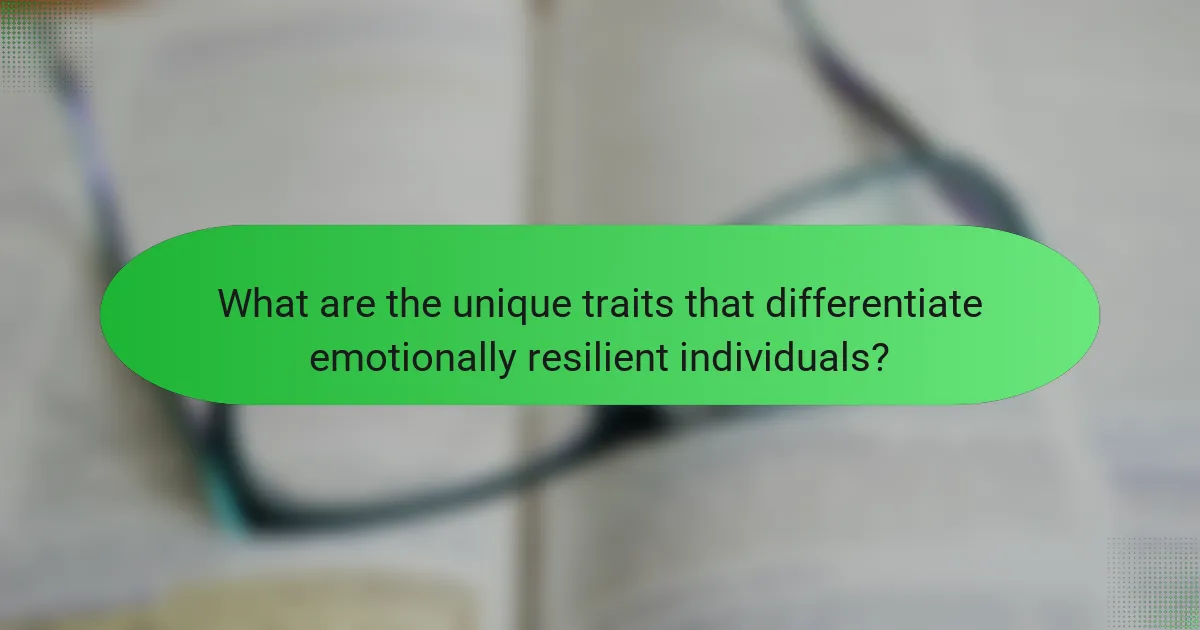
What are the unique traits that differentiate emotionally resilient individuals?
Emotionally resilient individuals possess unique traits that set them apart. These traits include adaptability, optimism, emotional awareness, and strong problem-solving skills. Adaptability allows them to navigate change effectively. Optimism fosters a positive outlook even in adversity. Emotional awareness helps them understand and manage their feelings. Strong problem-solving skills enable them to tackle challenges proactively. Together, these traits contribute to a robust ability to cope with stress and bounce back from setbacks.
How do personality types influence emotional resilience?
Personality types significantly influence emotional resilience by shaping how individuals respond to stress and adversity. For example, individuals with high openness may adapt more easily to change, while those with high neuroticism may struggle more with emotional regulation. Research indicates that specific traits, such as conscientiousness and extraversion, correlate with greater resilience. These personality attributes can enhance coping strategies and support networks, ultimately fostering better emotional health. Understanding these connections helps in developing targeted strategies for improving resilience based on personality profiles.
Which life experiences contribute to developing emotional resilience?
Life experiences that enhance emotional resilience include overcoming adversity, building supportive relationships, and engaging in self-reflection. Each experience contributes uniquely to resilience development. For example, facing challenges fosters problem-solving skills, while strong social connections provide emotional support. Additionally, self-reflection promotes personal growth and understanding.
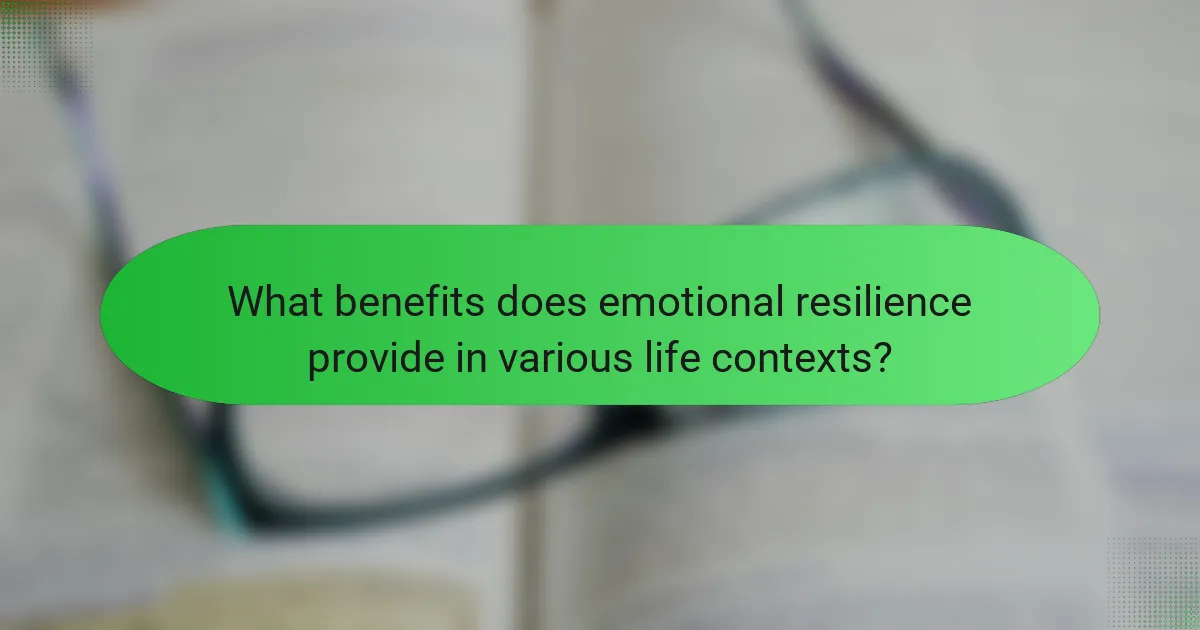
What benefits does emotional resilience provide in various life contexts?
Emotional resilience provides significant benefits across various life contexts, including improved mental health, enhanced relationships, and better performance in challenging situations. It enables individuals to adapt to stress, recover from setbacks, and maintain a positive outlook. For example, resilient people often experience lower levels of anxiety and depression, leading to overall well-being. Additionally, emotional resilience fosters stronger social connections, as individuals are better equipped to support others and navigate conflicts. In professional settings, it contributes to higher productivity and creativity, as resilient individuals can tackle challenges with confidence and resourcefulness.
How does emotional resilience impact workplace performance?
Emotional resilience significantly enhances workplace performance by improving stress management and fostering adaptability. Resilient employees demonstrate higher productivity, better teamwork, and increased job satisfaction. Studies show that organizations with emotionally resilient teams experience lower turnover rates and improved employee morale, leading to a more positive work environment. Developing emotional resilience through training and support can yield substantial benefits for both individuals and organizations.
What role does emotional resilience play in personal relationships?
Emotional resilience significantly enhances personal relationships by fostering effective communication and conflict resolution. Individuals with high emotional resilience can manage stress, adapt to challenges, and maintain a positive outlook. This ability leads to deeper connections and mutual support among partners. Emotional resilience contributes to relationship stability, reducing the impact of disagreements and promoting understanding. Developing emotional resilience through self-awareness and coping strategies can strengthen bonds and improve overall relationship satisfaction.
How can emotional resilience enhance coping strategies during crises?
Emotional resilience significantly enhances coping strategies during crises by enabling individuals to adapt and recover effectively. It fosters a positive mindset, allowing people to view challenges as opportunities for growth. Resilient individuals tend to utilize problem-solving techniques and maintain social connections, which provide emotional support. This adaptability reduces stress and promotes mental well-being, making it easier to navigate difficult situations. Developing emotional resilience through practices such as mindfulness and self-reflection can further strengthen these coping strategies.
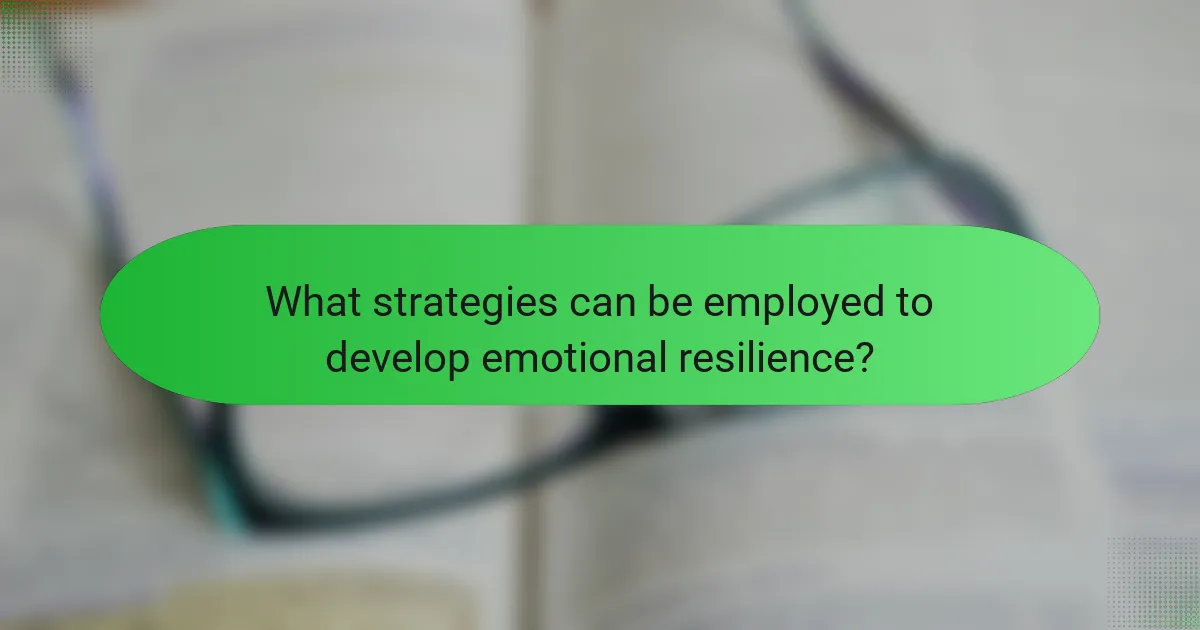
What strategies can be employed to develop emotional resilience?
Developing emotional resilience involves strategies such as fostering a positive mindset, practicing mindfulness, building strong social connections, and engaging in problem-solving. These approaches enhance adaptability and coping skills.
1. Cultivate a positive mindset: Focus on gratitude and positive affirmations to shift perspective.
2. Practice mindfulness: Engage in meditation or deep-breathing exercises to stay present and reduce stress.
3. Build strong social connections: Maintain supportive relationships that provide encouragement and understanding.
4. Engage in problem-solving: Approach challenges with a solution-oriented mindset to enhance confidence and resilience.
Which practices foster emotional resilience in children and adolescents?
Practices that foster emotional resilience in children and adolescents include promoting strong relationships, encouraging problem-solving skills, and teaching emotional regulation. These strategies help build confidence and coping mechanisms.
1. Foster strong relationships with caregivers and peers.
2. Encourage open communication about feelings.
3. Teach problem-solving skills through real-life scenarios.
4. Promote mindfulness and relaxation techniques.
5. Provide opportunities for age-appropriate challenges.
6. Model resilience through personal examples.
How can adults strengthen their emotional resilience?
Adults can strengthen their emotional resilience through various strategies. Practicing mindfulness enhances self-awareness and emotional regulation. Building strong social connections provides support during challenging times. Engaging in regular physical activity boosts mood and reduces stress. Developing problem-solving skills increases confidence in facing adversity. Setting realistic goals fosters a sense of achievement and purpose. Lastly, seeking professional help when needed can provide valuable tools for managing emotions.
What role do community and social support play in building resilience?
Community and social support are crucial for building emotional resilience. They provide individuals with resources, encouragement, and a sense of belonging. Strong social networks enhance coping mechanisms and promote mental well-being. Studies show that people with supportive relationships experience lower stress levels and improved emotional health.
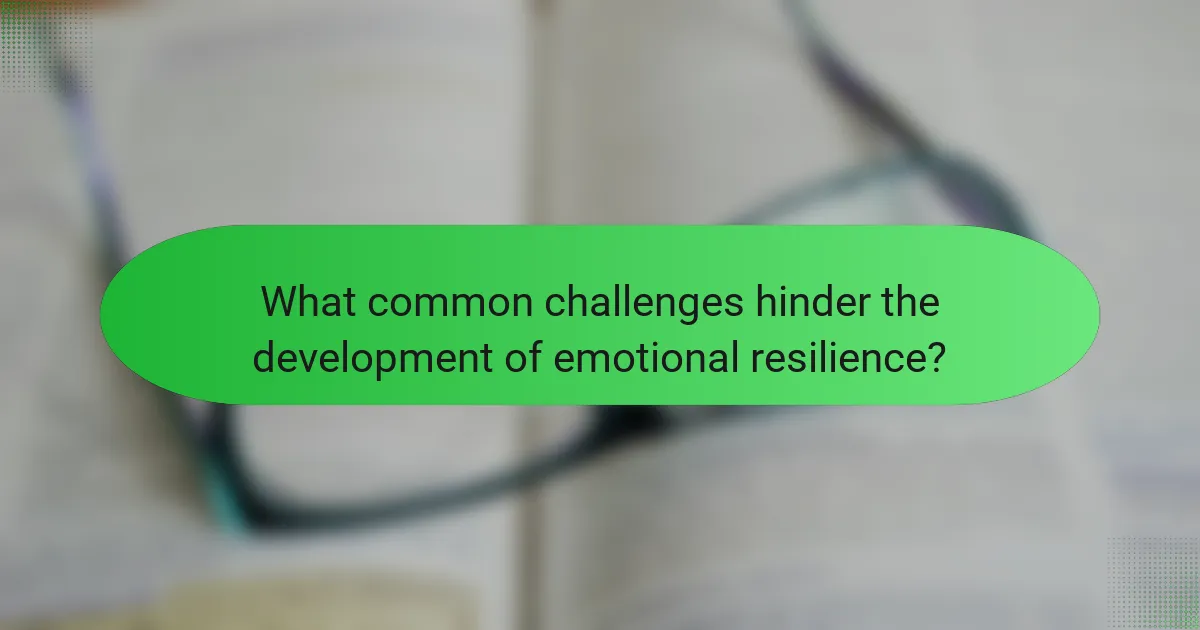
What common challenges hinder the development of emotional resilience?
Common challenges that hinder the development of emotional resilience include negative thought patterns, lack of social support, and difficulty managing stress. These factors can create barriers that prevent individuals from effectively coping with adversity. Negative thoughts can lead to feelings of helplessness, while insufficient social connections may result in isolation. Additionally, poor stress management techniques can exacerbate emotional responses, further impeding resilience development. Addressing these issues is crucial for fostering emotional strength and adaptability.
How do societal pressures affect emotional resilience?
Societal pressures can undermine emotional resilience by creating stress and anxiety. These pressures often stem from expectations regarding success, appearance, and social behavior. As a result, individuals may struggle to cope with challenges, leading to decreased mental well-being. Emotional resilience is vital for navigating these pressures effectively. Building this resilience involves developing coping strategies, fostering a supportive network, and engaging in self-care practices.
What misconceptions exist about emotional resilience?
Many misconceptions about emotional resilience include the belief that it means being emotionless or that it is an innate trait. In reality, emotional resilience involves managing emotions effectively and is a skill that can be developed over time. Another common myth is that resilient individuals do not experience stress or adversity; instead, they face challenges and learn from them. Additionally, some think that emotional resilience is solely about individual strength, while it often relies on social support and connections.
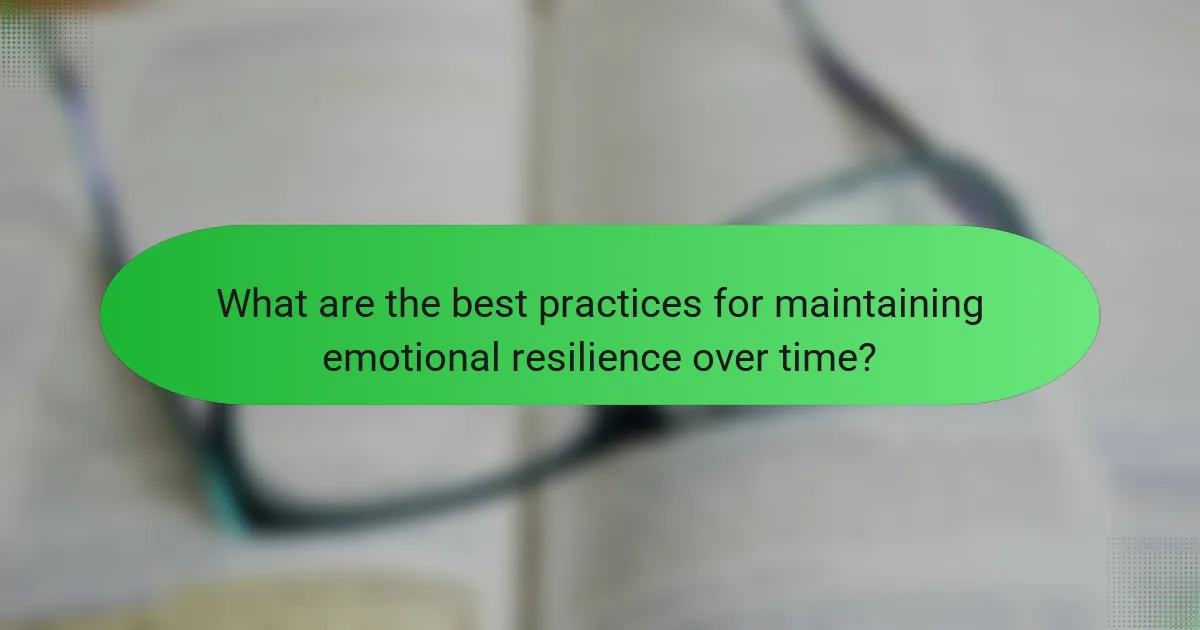
What are the best practices for maintaining emotional resilience over time?
To maintain emotional resilience over time, practice self-care, build strong relationships, and develop a growth mindset. Regularly engage in mindfulness techniques, set realistic goals, and embrace change as an opportunity for growth. These strategies enhance adaptability and promote long-term emotional well-being.
What expert tips can enhance emotional resilience in everyday life?
Practicing mindfulness, fostering social connections, and maintaining a positive mindset can enhance emotional resilience in everyday life. These strategies help individuals manage stress effectively and adapt to challenges.
Mindfulness techniques, such as meditation and deep breathing, promote self-awareness and emotional regulation. Social connections provide support and a sense of belonging, which are crucial for resilience. A positive mindset encourages individuals to view setbacks as opportunities for growth, enhancing their ability to cope with adversity.
Incorporating these strategies into daily routines can lead to improved emotional health and overall well-being. Regular practice fosters a resilient mindset, enabling individuals to navigate life’s challenges with greater ease.
Which common mistakes should be avoided in resilience training?
Common mistakes in resilience training include neglecting emotional awareness, setting unrealistic goals, and failing to practice regularly. Participants often overlook the importance of self-reflection, which can hinder progress. Additionally, not seeking support from others can lead to isolation, reducing the effectiveness of training. Lastly, focusing solely on negative experiences without recognizing positive growth can diminish motivation and resilience development.
